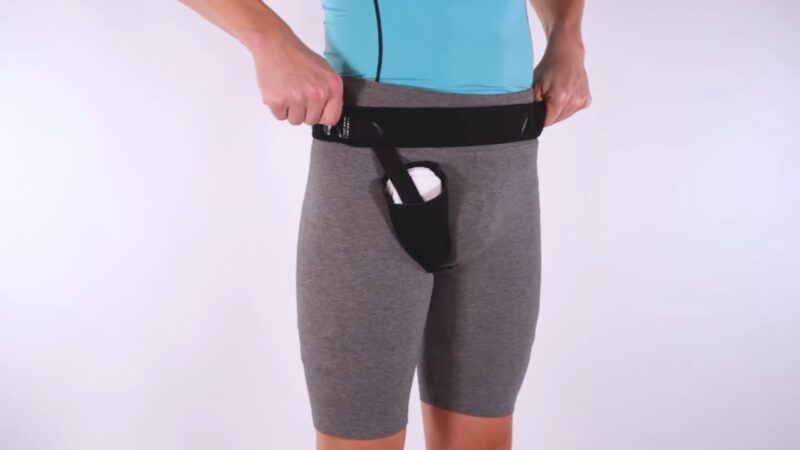A hernia, while common, can pose significant health concerns if left untreated. But who should you turn to for diagnosis and treatment? This article will help you learn more about the type of specialist that can help in dealing with this condition.
Understand the Basics
At its core, a hernia occurs when an organ, often part of the intestine or fatty tissue, breaches a weak area in the encompassing muscle or tissue, creating a bulge. This protrusion can be a source of pain, especially during activities like coughing, bending, or lifting.
Several factors contribute to hernia development. They often emerge from pressure in the abdomen, either due to weight, constipation, or persistent coughing. In some cases, they can be congenital, meaning individuals are born with them. Previous surgical operations can also pave the way for hernias, as can the natural aging process.
While the bulge is the most visible sign, other symptoms might manifest. These can include pain, discomfort, or a feeling of weight in the affected region. In advanced cases, hernias can bring about nausea or severe pain, indicating a strangulated hernia, which demands immediate medical attention.
Types of Hernias
Every hernia is unique, and their classification is crucial for appropriate care.
1. Inguinal Hernias
Predominantly found in men, these hernias appear in the groin. This happens when parts of the intestine or bladder push through the abdominal wall or into the inguinal canal in the groin. Their prevalence can be linked to the natural weakness in these areas.
2. Femoral Hernias
These are more frequent in women, particularly those pregnant or obese. Located in the upper thigh or outer groin, femoral hernias are caused when the intestine enters the canal carrying the femoral artery.
3. Incisional Hernias
These emerge post-surgery when the intestine pushes through the abdominal wall at the site of a previous surgical wound. They’re often associated with surgeries that required large incisions or infections post-operation.
4. Umbilical Hernias
They form around the belly button and are prevalent in newborns. However, adults aren’t immune, especially those grappling with obesity or who’ve had numerous pregnancies.
5. Hiatal Hernias
A unique form, this hernia happens when the upper stomach squeezes through the diaphragm into the chest cavity. It’s closely linked to acid reflux or GERD.
Doctors Specialized in Treating Hernias
Visiting the right person is always the best solution. Therefore, it is crucial for everyone to see their doctor from time to time and have a regular check-up of their health.
Noticing that you are having issues with your spine can be a clear indication of developing problems. There is a chance that you can prevent more serious conditions and ensure easier or more successful treatment by deciding to visit only well-known experts in the area.
General Surgeon
The most frequent point of contact for hernia patients is a general surgeon. Equipped with comprehensive knowledge, they can address a wide range of surgical needs, including the abdomen. Their expertise isn’t just limited to the operation but spans the entire treatment spectrum, from diagnosis to post-operative care.
Pediatric Surgeon
Children’s physiology and medical requirements differ from adults. Pediatric surgeons are trained specifically to understand and cater to these nuances. They’re the go-to specialists for children grappling with hernias, especially umbilical ones, ensuring the child’s safety and comfort during treatment.
Alternative Ways to Deal With Hernias

The first thing that we have to mention is that these alternatives are not related to some unrecognized medicine and products where sellers claim they could help you deal with some health condition.
On the other hand, there are some methods you can adopt that could lower the chance to ever face hernia, or decrease the symptoms.
Lifestyle Changes
Minor hernias sometimes can be managed through simple lifestyle shifts.
1. Weight Management
A healthy weight lessens abdominal pressure, mitigating hernia symptoms. Regular exercise and a balanced diet can play a pivotal role in weight maintenance.
2. Diet
For hiatal hernias, small meal portions, avoiding lying down post meals, and consuming non-acidic foods can keep symptoms in check.
3. Avoiding Strain
Proper techniques when lifting, coupled with addressing constipation, can minimize hernia-associated discomfort.
Hernia Belts or Trusses

While they seem beneficial, these supporting garments must be used judiciously. They’re designed to hold the hernia in position, but prolonged or incorrect use can exacerbate the condition. Always consult a physician before opting for these.
Prevention
The best way to manage a hernia is to prevent it from occurring in the first place. While not all hernias are preventable, especially those that are congenital, there are specific practices and precautions you can adopt to minimize the risk.
Maintaining a Healthy Weight
Excess body weight, especially around the abdomen, increases the pressure on the abdominal muscles, making them more susceptible to developing hernias.
Adopting a balanced diet, low in processed foods and rich in whole grains, fruits, and vegetables, can be instrumental. Moreover, regular exercise not only helps in weight management but also strengthens the abdominal muscles, offering a dual protective benefit.
Lifting Objects Properly

One of the common misconceptions is that hernias are only linked to lifting heavy weights. In reality, it’s more about the technique. When lifting any object, it’s essential to bend at the knees and engage the leg muscles rather than the waist.
Using supportive equipment, taking breaks, and avoiding lifting weights beyond one’s capacity can also be crucial.
Managing Chronic Coughs
Persistent coughing exerts repeated pressure on the abdominal wall. If one has a chronic cough due to conditions like asthma, smoking, or bronchitis, it’s essential to seek medical advice and get the necessary treatment.
Not only does it aid in hernia prevention, but it also ensures optimal respiratory health.
Avoiding Straining during Bowel Movements
Chronic constipation and straining during bowel movements can weaken the abdominal muscles over time. There are several ways to avoid this:
Avoiding Tight-Fitting Clothes
Tight belts or waistbands can exert continuous pressure on the abdominal region, increasing the risk of hernias. Always choose well-fitted, comfortable clothing, especially if you’re predisposed to hernias.
Post-Surgical Care
For those who’ve undergone abdominal surgeries, following the prescribed post-operative care is crucial. Avoid challenging activities and follow the recommended exercise regimen to strengthen the surgical site and prevent incisional hernias.
FAQs
Can hernias disappear on their own?
No, hernias don’t generally disappear on their own. While the symptoms might sometimes ease or the bulge might seem less prominent, the underlying defect in the muscle or tissue doesn’t heal by itself. It’s crucial to seek medical advice to determine the best course of action.
Are there specific age groups more susceptible to hernias?
Hernias can affect people of all age groups. For instance, umbilical hernias are common in infants, while inguinal hernias are more prevalent in adult men. However, the risk for certain types of hernias can increase with age due to weakening muscles and tissues.
Can pregnancy cause hernias?
Yes, pregnancy can increase the risk of hernias, particularly femoral and umbilical hernias. The growing uterus exerts additional pressure on the abdominal wall, which, coupled with hormonal changes that soften tissues, can lead to hernias.
Are recurrent hernias common after surgery?
While surgical techniques have advanced significantly, reducing the chances of recurrence, it’s still possible for a hernia to come back after repair. Ensuring proper post-operative care, following medical guidelines, and strengthening the abdominal muscles can reduce the risk of recurrence.
The Bottom Line
Hernias, while common, should never be taken lightly. If you or someone you know suspects they have a hernia, consulting with the appropriate medical professional is crucial.
While there are alternative ways to manage the symptoms, many cases eventually require surgical intervention. Therefore, prevention and early detection remain the best approach.

